Your requirements (for life) are dumb: how to tell if you’re on the right track
We receive many cultural messages throughout life, and one of these, at least in the West, is ‘be productive’. It’s a loud enough message that it can seem like an obvious requirement for living a good life. But if we look a bit deeper, then we might get some useful insight from asking ‘What’s the point of productivity?’
At work, each piece of coding work I do comes with requirements about what is needed. We can think of ourselves having implicit requirements for life, too. In general, we don’t spend much time trying to pin down what those requirements actually are, or if they make sense.
Elon Musk is a mixed bag, but I do like what he has to say about his engineering process. He says there are five steps to improving efficiency:
- Make the requirements less dumb
- Try and delete part of the process
- Simplify or optimise
- Accelerate cycle time
- Automate
When trying to make a process run better, everyone (including Elon Musk) is inclined to go backwards up this list: to try and automate every step or just do them faster, then to try and optimise the existing solution, before they ever think about whether they can do without any of the steps or whether the whole premise of why you need to do this at all is flawed. But your premise will almost definitely be flawed. As Musk says, “The requirements [of the project] are definitely dumb; it does not matter who gave them to you. It’s particularly dangerous when they come from an intelligent person, as you may not question them enough. Everyone’s wrong. No matter who you are, everyone is wrong some of the time.”
So it is a very powerful question to ask yourself: do you really need to achieve this goal? Why?
Deciding what you want is harder than it looks
We are good at wanting things. It comes instinctively to us; after all, our emotions can be boiled down to reactions that tell us if we want more of X or we don’t want Y. (The impulses to ‘approach’ or ‘avoid’ as discussed in the knowing-doing gap post.) However, we rarely step back and think about where what we want came from, whether it’s still what we want, whether getting what we want will really solve the problem we think it will, or even whether it’s something we genuinely want or just something we think we should want.
All of these questions are scary, because it means questioning a base and more-or-less stable part of our identity. If we change what we want in life, we are changing who we are, in some sense. Our ego definitely doesn’t want to do that, because changing who we are and what we stand for threatens our ego’s very existence. So, actually getting to the bottom of what we truly want from life is much more difficult than just wanting things, and that’s without even getting into all the environmental influences on us which give us so many of our ‘personal’ opinions.
It can also be a lot of work to change your mind about what you want. You might have to rebuild quite a large part of your life. This is especially the case if what you change your mind about wanting is a relationship, for instance. Losing the stability of the status quo feels threatening—the unknown of change is always going to be scarier than the familiar, even if your current situation is inherently toxic and dangerous. It’s no wonder that our brains do what they can to suppress any inklings of doubt about our chosen path.
Something else that your brain will resist thinking about is the idea that not only are your goals arbitrary, but your whole sense of self is also malleable. Who you feel like you are is actually a clever story told to you by your own brain. Realising this can be frightening and destabilising, but it can ultimately liberate us from worrying too much about anything that the ego is telling us, especially about expectations and limiting beliefs that trap us in cycles of unhappiness.
Just like with procrastination, if a decision or action seems simple but you are still struggling with it, then there will be deeper reasons for that. Your brain is a complex, multi-layered web of motivations that you don’t fully control, so don’t get too frustrated with yourself if you aren’t certain about what you truly want to go for in life. There’s a lot more going on than some mystical ideal of looking within yourself to uncover your dreams and then following them forever, with no adjustments when you or your circumstances change.

What’s the point of productivity?
Being productive is seen as an unquestioned good in our society. Most books about organisation or time-management take it as obvious that fitting more in will be better.
I used to whole-heartedly believe this. Surely living well was about achieving more, and having as many varied and rich experiences as I could manage. Saying no to any opportunity seemed like madness.
However, there are those for whom becoming ultra-productive isn’t an option. ADHD is literally a disability in being productive. There are many other neurological conditions and mental illnesses which make being productive a sincere struggle. And even for those like me, who previously were more-or-less addicted to being productive as a form of worth, trying to fit more and more in didn’t do me any good in the long-term. Being ultra-productive only leads to burn-out.
There are other cultures in the world where productivity is not given such pride of place. There was a time in our society, at some point pre-Puritans, when producing more and more stuff was not the point. The whole thing is tied into the industrial revolution, and the idea of maximising output in factories. A lot of our lives are now subconsciously modelled on these principles—just look at how a typical school is structured, almost like clocking in for a factory shift with a strict start and end time, enforced obedience to your ‘overseers’, an emphasis on one right way of doing things, and your ‘output’ being graded against others to determine who are the hardest workers. (Not to mention that the entire purpose of schools is not just education, but free childcare, so that parents can rejoin the workforce.) But if being productive (or trying to be) is causing you stress, then it’s worth asking: what’s the point of productivity?
Sticking with the industrial revolution (and capitalism in general) for a moment, the point of productivity was to make a few people very rich, which had the unfortunate side-effect of making a lot of people very miserable. Here in the UK we like to visit the beautiful country houses that are dotted liberally around the place. Every single one of those was made possible by exploitation. However, history tends to remember the names of these rich, powerful people and celebrate the things that their riches allowed them to achieve, like works of art and scientific breakthroughs. We forget all the work put in by women, the working class, and the victims of colonialism and white supremacy across the world in order to support the existence of this amount of privilege.
We undervalue the importance of social support and teamwork because we are living in a culture that celebrates individualism. The culture also celebrates the idea of ‘suffering for your art’ or nobly pushing through any amount of obstacles to reach your dreams. The achievement matters more than the mental health of the achiever. Hannah Gadsby has a part in her special Nanette that really helped shift my perspective on this.

“Vincent van Gogh. The way we tell his story… it’s no good. It’s destructive. Because we’ve reduced it to a tale of rags to riches. He only sold one painting in his life. […] And people believe, with that story, that van Gogh was this misunderstood genius. You know, he was born ahead of his time. What a load of shit. […] He wasn’t born ahead of his time. He couldn’t network. ‘Cause he was mental. He was… crazy. He had unstable energy. People would cross the street to avoid him. That’s why he didn’t sell any more than one painting in his lifetime. He couldn’t network. This whole idea, this romanticizing of mental illness, is ridiculous. […]
“Do you know why we have the sunflowers? It’s not because Vincent van Gogh suffered. It’s because Vincent van Gogh had a brother who loved him. Through all the pain, he had a tether, a connection to the world. And that… is the focus of the story we need. Connection.”
This directly relates to how we view personal productivity nowadays. Being personally productive in the modern world tends to come with the promise of creating a better life for yourself. Even outside of America, the whole Western world is sold the American dream. If you learn a lot and work hard, you’ll get a good career; with a good career, you can earn more money; with plenty of money, you can enjoy yourself more and live a better life. With a good career and plenty of money, you can have status and respect from society. You will be granted positions of power, which will make you feel important and worthy and give you access to the resources to change your environment to suit you. And all the while, you will need to constantly improve. You will need to buy things to improve yourself, and to sustain your pace of living, and to retain your position of status and respect. And so you will need to work harder, to earn more money…
Want what you have
Personally, I’ve been gradually weaning myself off taking on new projects and constantly trying to one-up myself in my efforts to achieve. I am lucky to have the option of only working three days a week now that Francis is also working, and although deciding to let go of the extra income (and the ambition of being promoted) felt quite uncomfortable at the time, and I have not been ‘maximising’ my time during my four-day weekends, I am definitely happier having more space around the things I want to do and need to get done.
The anarchist Tom Hodgkinson, in his book How to be Free, advocates for a simpler life, both by letting go of things you have been told you need to do or have (like a TV, a car, a mortgage, or a career), and by embracing the self-imposed limits of a restricted income and restricted access to society’s infrastructure. He espouses being an ‘idler’ rather than a ‘toiler,’ and living in the present rather than operating under the idea that it’s worth sacrificing today’s pleasures for some abstract, illusional, perfect tomorrow. “[T]he quest for self-perfection [is] the secular version of the Protestant’s search for salvation. […] It is a pilgrim’s progress.” There are counter-cultural movements built on this idea, such as the ‘lying flat’ movement in China and the anti-work subreddit.
Being satisfied with less—with what you already have—is the definition of being content. So in a very real way, learning to want what you have is the key to happiness. Now, this is not a reason to accept oppression, or a living situation that is not safe. I mean this in the sense of practising gratitude (another proven key to happiness) and making sure not to discount the value that our life already has, and the good you’ve already created.
It’s hard to unlearn the idea that we need more to be enough. As I outlined above, the Puritans and industrialists have been hard at work for hundreds of years convincing us all that being productive (and consuming more) is the only way to be a good person. But we probably already have the basics of what we need to live well; most of us in the Western world have an okay space to live in, access to clean water and enough to eat. (In a way, I think removing these core needs as the central motivator of our everyday lives is a big reason why we struggle with our mental health so much. This is based on the assumption that our hunter-gatherer ancestors evolved to feel quite satisfied from spending half the day wandering around finding food and the other half relaxing. However, I am also grateful that acquiring enough food isn’t the main thing on my mind all the time, so it’s a mixed feeling.)
All of this is to say that if you choose to step off the hedonic treadmill and stop aiming for traditionally ambitious targets, you are actually claiming a radical form of self-acceptance and bravely rejecting the cultural narrative of capitalism. Fitting more and more into every minute will not lead to a fulfilled, peaceful life. Being able to prioritise what is truly important to you is a far more important skill than being able to be productive. Your worth is not tied into being a productive member of society. We all (and the planet) would probably benefit from learning how to feel calm and satisfied with doing less. We have to look after ourselves and make enough money to live on, which is a fair amount of work by itself, but beyond that choosing to do anything else should be just that, a choice. You are allowed to do nothing with your time! Doing less might just be living more.
What I try to remember these days is that in the end, all goals are arbitrary. Sure, I want to have a nicer, more organised, decorated house that suits my needs and lifestyle, and I’m working towards that. But getting to that goal is less important than my current mental health. No matter what achievement I was working towards when I was younger, with its promise of a better future, I always felt anxious, tense, and stressed. No matter what I’m working on now, if I can do it while feeling calm and confident, I’ve already succeeded in the most important thing. Here is the ultimate truth about productivity: what you spend your time doing is less important than how you feel while you’re doing it.
How to tell if you’re on the right track
One of the first things I learned in therapy, after having burned out in university, was that I couldn’t accurately tell how I felt about things. I was out of touch with my own emotions. Of course I was—I had been deliberately suppressing my feelings of exhaustion and despair and anxiety in order to keep going, and this was how I had functioned throughout my whole life so far. So even trying to figure out what I wanted or enjoyed was a tricky exercise.
Truthfully, I still struggle with this. I thought that what I really wanted to do was to write a self-help book about Home Scrum. It turned out that was actually not the case. I thought I wanted the status and the respect that would come from being a published author. The reality of putting myself under the pressure and expectation of such a big, public project was much less desirable. I have struggled a lot with my anxiety around writing all this over the last couple of years, and if it wasn’t for the hope that Home Scrum would bring genuine value to other people in neurodivergent households like mine, I would have let it go. After this blog is online, I have promised myself to not take up any more impressive, high-pressure projects. I need to break this cycle and see what happens when I am not busy being crushed by my own goals.
The best advice I can offer in terms of figuring out if your goals are healthy ones is to listen to your emotions. Do you feel overwhelmed by the thought of what you’re trying to do? Or do you feel excited? Excitement is perhaps our best barometer for if we actually want and enjoy something, rather than thinking that we should. When you find something to aim for that continues to give you a thrill even after the initial (potentially perfectionistic) promise of greatness, then you are on the right track. For me at the moment, this means working on crochet projects and taking visits to yarn shops with my best friend Alex. Despite crochet being a modest, private hobby, I’m finding that it’s giving me all I ever needed in terms of a sense of belonging, calm, progress, challenge and fulfilment.








